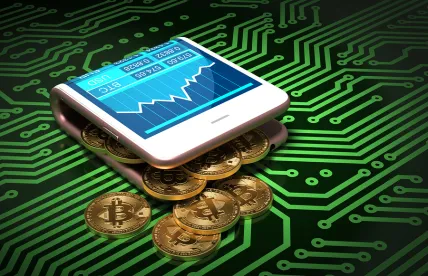For years we have been treated to the impassioned entreaties of cryptohippies, hardcore libertarians, and straight-up conmen for the rest of us to understand that both blockchain and Bitcoin have “changed everything” and are driving us toward a destiny of money freed from government interference and life choices free from consequence, where crypto manna falls from the sky and magical fruits of the blockchain are ripe for easy picking.
Anyone with a baseline of common sense or any historical perspective has rolled his or her eyes over these notions, limiting excitement to the quotidian real-world uses for block chain and the prospect of cryptocurrency as just another speculative investment. But that hasn’t stopped the press, naïve investors and even state legislators from hitching their wagon to blockchain and cryptocurrency so they can participate in the heedless and hollow excitement.
But the last few months has put the lie to this unsupported optimism. On the business side, despite breathless Forbes stories promising “major moves” in Bitcoin value, the flagship cryptocurrency’s value has dropped nearly 50% from its 2019 high and more like 70% off of its all-time high. Still a terrific bargain if you bought it at 2 cents a decade ago and can find where you stored your old digital wallet that used to sit in a desktop that has long since rested moldering in a landfill. But not a great trend in general. Bitcoin has been beset in recent years by multiple thefts and frauds, bad environmental footprints, and the inevitable regulation we will discuss below.
The expected savior of the cryptocurrency markets, Facebook’s latest vaporware called Libra, has also suffered a rough few months since its trumpeting announcement this Spring. The Zuck Buck was intended to lubricate ecommerce on the social network and beyond, but has been roundly criticized by politicians, regulators and bankers and has lost significant support. Of Facebook’s originally announced partners, PayPal became the first to turn tail, followed importantly by Visa, MasterCard, Stripe, eBay, Mercado Pago, and Brooking Holdings (Priceline, Kayak, Booking.com). Can Andreessen Horowitz be far behind? Privacy questions hang over the effort. Mr. Zuckerberg spent a day defending the concept before a hostile U.S. House of Representatives last week.
The blockchain itself has found serious trouble. Despite politicians being so enamored with the blockchain concept that they have passed laws promoting it in their states (see https://stateblockchainlaw.com/), blockchain still remains little more than a quirky database application. Womble’s financial regulatory guru Stephen Middlebrook has noted that “passing a law about blockchain is the same as trying to regulate Excel spreadsheets.”
And this month, one of the many potential drawbacks of blockchain as a transactional repository have come to light. In October 2019 the Justice Department revealed an enormous international law-enforcement operation to shut down a child exploitation website hosting more than 8 terabytes of child pornography from servers in South Korea, but servicing law-breaking perverts from all over the world. The operation can only be seen as a positive event, but law enforcement was able to wrangle the entire monstrous organization because its payments were handled using publicly listed Bitcoin wallets. When you are proposing to break the law, you should probably not pay for your illegal actions over a tool like blockchain that keeps permanent records and holds them on multiple international servers. Rather than the legally liberating technology touted by its advocates, Bitcoin and other blockchain currencies turn out to be excellent tools for investigating and proving the crimes of their users.
Further, one of the government oppressions where cryptocurrency was supposed to liberate us was taxes. That lasts only as long as the taxing authorities have not decided how to tax the category. That time is over in the U.S. The IRS this month issued guidance regarding virtual currency transactions and finding them to be property, rather than currency for U.S. federal income tax purposes. Many people are unsurprised that a digital asset completely free of backing by governments or even sizable corporations will not be seen as currency, but treated more like a commodity. But this pins Bitcoin holders into a more traditional model and cuts into its value. May the taxing begin.
Finally, the SEC has continued its march to rope the initial coin offering market into a more traditional corral this month by imposing a $24 million settlement on Block.one over its unregistered ICO. This fine comes despite the lack of a finding of deceptive conduct by Block.one during its ICO. The SEC has shown that acting deceptively in this space can engender huge fines and now has demonstrated that even failing to register the ICO as a security will be pursued and punished.
Cryptocurrencies, Blockchain and ICOs had operated for a long time without the certainty or strictures of regulatory classifications or even understanding from the general public. If this month is any indication, those days are rapidly ending, and the sexy new technology ideas are falling back to earth. We have reached a new phase in the hype environment – realism.




 />i
/>i

